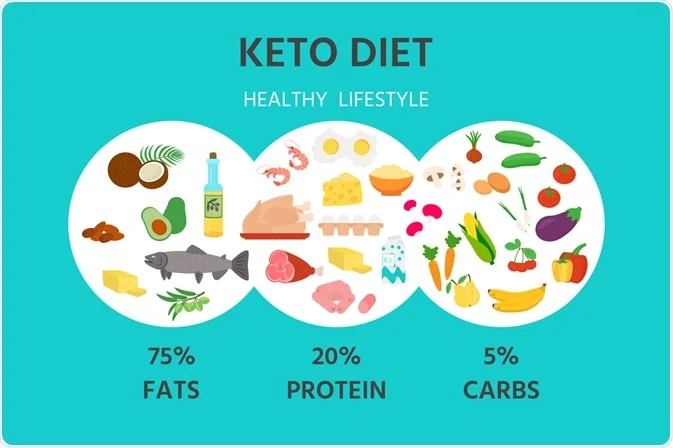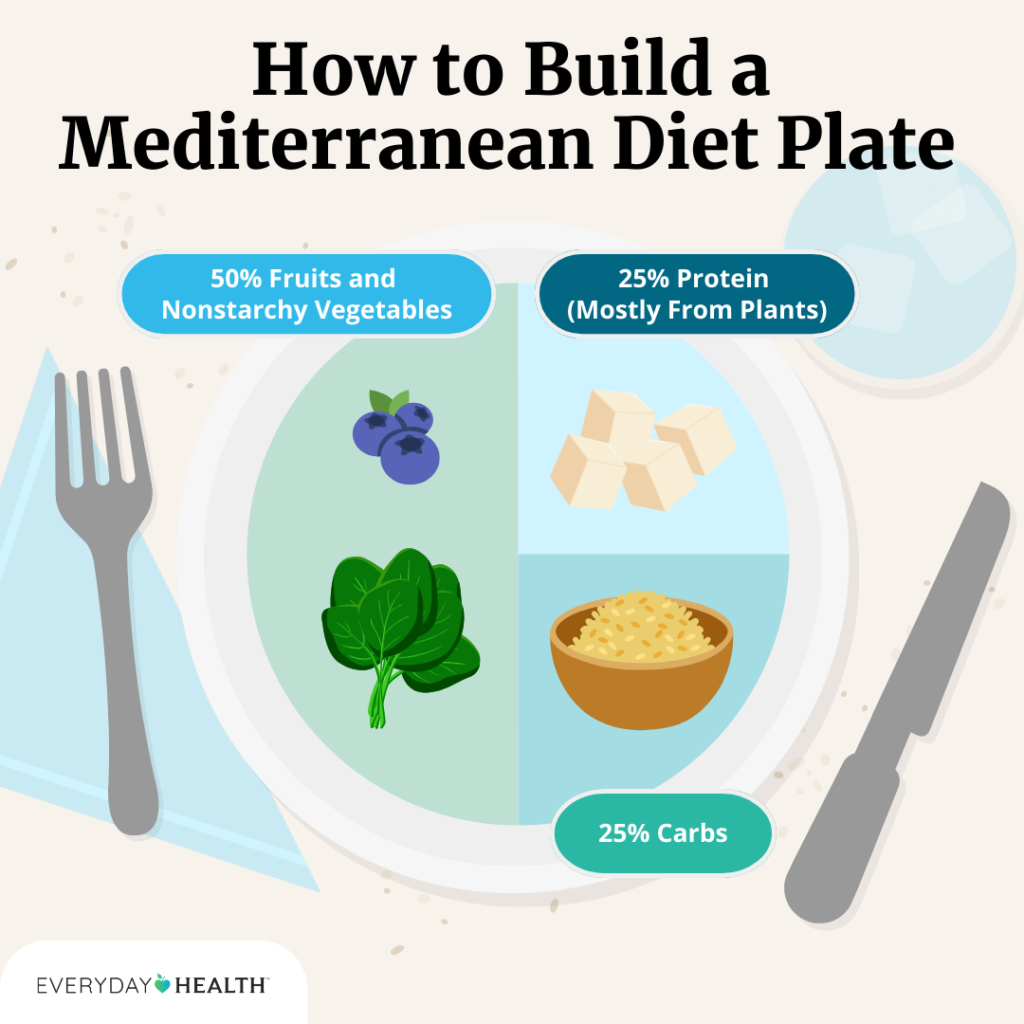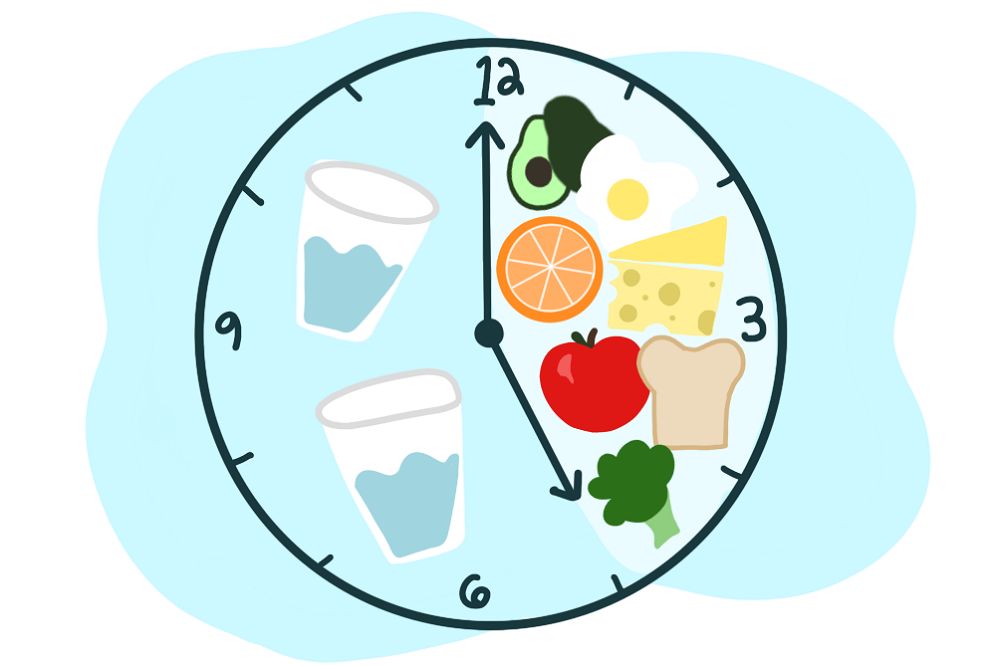Table of Contents
Introduction: Understanding the Best Weight Loss Diets for Women
For many women, the journey to healthy weight management isn’t simply a matter of reducing calories or adopting a specific diet trend—it’s about finding an approach that aligns with their lifestyle, health concerns, and long-term wellness goals. Whether the goal is to shed extra pounds for health reasons, boost energy, manage hormone fluctuations, or simply feel more comfortable in one’s skin, diet plays an essential role. Yet, with so many options on the market, how do you navigate the clutter to identify the right path?
The weight loss industry is filled with confusing messages, over-promising products, and quick fixes that often fail to deliver lasting results. What works for one person may not work for another, and what’s more, the diets that do work require more than just temporary commitment. Long-term success is grounded in sustainable habits—those that not only lead to weight loss but improve overall health and wellness.
In this guide, we will examine three of the most popular diets for women looking to lose weight: the Keto diet, the Mediterranean diet, and Intermittent Fasting. By exploring the science behind these diets, understanding how they work, and examining the benefits and challenges of each, you’ll be better equipped to choose the one that fits your unique needs and goals.
The Keto Diet: A Low-Carb, High-Fat Approach to Weight Loss

The Keto diet has been one of the most talked-about weight loss trends in recent years. What began as a therapeutic approach for individuals with epilepsy has quickly gained mainstream popularity as a method for weight loss. So why has it become such a go-to option, particularly for women?
How the Keto Diet Works: The Science of Ketosis
At its core, the Keto diet focuses on dramatically reducing carbohydrate intake and increasing fat consumption to trigger a metabolic state called ketosis. In ketosis, the body shifts its primary fuel source from glucose (derived from carbohydrates) to ketones, which are produced by the liver from stored fat. This state forces the body to burn fat for energy, making fat loss the primary effect of the diet.
The Science of Ketosis and Its Effects on the Body
The ketogenic process is more complex than simply reducing carbs. When carbohydrates are limited to around 5-10% of daily caloric intake, the body exhausts its glycogen stores (the stored form of glucose) and starts breaking down fatty acids. These fatty acids are converted into ketones, which the brain and body use as an alternative energy source. This shift encourages more efficient fat burning.
When glucose is scarce, ketones become the preferred energy source for the brain, heart, and muscles. Interestingly, some studies suggest that ketones may even be a more efficient fuel than glucose, especially for the brain, leading to increased mental clarity and focus. This is one reason why many women who follow the Keto diet report improved mental alertness.
Benefits of the Keto Diet for Women
- Rapid Weight Loss: One of the most immediate benefits of the Keto diet is rapid weight loss, especially in the initial stages. The body quickly begins to burn fat, leading to noticeable reductions in body fat percentage. This is particularly appealing for women looking for a quick transformation.
- Reduced Appetite and Cravings: The high fat intake on the Keto diet can lead to reduced hunger. Fat is more satiating than carbohydrates, which helps many women stick to a calorie deficit without feeling deprived.
- Improved Blood Sugar Regulation: For women with insulin resistance or Type 2 diabetes, the Keto diet has been shown to improve blood sugar control. By reducing carbs, the body’s insulin requirements decrease, and blood sugar levels stabilize.
Challenges of the Keto Diet for Women
While the Keto diet offers significant benefits, it’s not without its challenges. Women, in particular, may face unique hurdles.
- Hormonal Fluctuations: Hormones play a crucial role in how women respond to the Keto diet. During certain phases of the menstrual cycle, women may experience heightened sensitivity to low-carb diets. This can lead to fatigue, irritability, and hunger. For this reason, some women may need to adjust their carb intake slightly, particularly during the luteal phase of their cycle.
- Nutrient Deficiency: The strict nature of the Keto diet can lead to nutrient imbalances, especially if the diet lacks variety. Women on the Keto diet may miss out on key vitamins and minerals typically found in fruits, vegetables, and whole grains.
- Potential Impact on Thyroid Health: Studies have suggested that long-term adherence to the Keto diet may negatively impact thyroid function, particularly in women. This can lead to symptoms of hypothyroidism such as fatigue, dry skin, and weight gain.
The Mediterranean Diet: A Heart-Healthy, Sustainable Weight Loss Plan

Unlike the restrictive nature of the Keto diet, the Mediterranean diet offers a more balanced approach to weight loss and overall health. Based on the traditional eating habits of countries bordering the Mediterranean Sea, this diet emphasizes whole, unprocessed foods, healthy fats, and moderate portions of lean protein.
The Principles of the Mediterranean Diet
The Mediterranean diet is based on the consumption of nutrient-dense foods, with a focus on:
- Healthy Fats: The primary fat source is olive oil, a monounsaturated fat that is linked to improved heart health. Nuts, seeds, and avocados are also included as sources of healthy fats.
- Fruits and Vegetables: These form the cornerstone of the diet, providing essential vitamins, minerals, and antioxidants. Antioxidant-rich foods like tomatoes, leafy greens, and berries help reduce inflammation and fight oxidative stress.
- Lean Proteins: Fish, particularly fatty fish like salmon and sardines, is a key protein source, rich in omega-3 fatty acids. Legumes, such as beans, lentils, and peas, are also emphasized as plant-based protein sources.
- Whole Grains: Whole grains like brown rice, quinoa, and oats provide fiber and are a good source of slow-digesting carbohydrates.
- Moderate Wine Consumption: Red wine is consumed in moderation and is thought to offer cardiovascular benefits due to its high levels of polyphenols and antioxidants.
Benefits of the Mediterranean Diet for Women
- Sustainable Weight Loss: The Mediterranean diet is less restrictive and more sustainable than other diets, making it easier to adhere to over the long term. The inclusion of whole, nutrient-rich foods helps promote gradual weight loss without extreme restrictions.
- Heart Health: This diet is known for its cardiovascular benefits, particularly in reducing the risk of heart disease. The use of olive oil and omega-3-rich fish helps to improve cholesterol levels and lower blood pressure.
- Reduced Inflammation: Chronic inflammation is linked to various diseases, including heart disease, diabetes, and arthritis. The Mediterranean diet’s focus on antioxidant-rich foods helps reduce inflammation, which is crucial for overall health.
- Improved Gut Health: With its emphasis on fiber-rich foods like vegetables, fruits, legumes, and whole grains, the Mediterranean diet helps improve gut health by promoting healthy digestion and supporting the growth of beneficial gut bacteria.
Challenges of the Mediterranean Diet for Women
While the Mediterranean diet is generally considered healthy and sustainable, some women may encounter challenges in following it:
- Calorie Density: The high intake of healthy fats, while beneficial, can also make the diet calorie-dense. Women who are trying to lose weight may need to monitor portion sizes to avoid overeating, especially in relation to fat-heavy foods like olive oil, nuts, and avocados.
- Meal Prep Time: Although the Mediterranean diet emphasizes simple, whole foods, preparing meals that align with this eating plan may require more time and effort compared to more convenience-based diets.
Intermittent Fasting: A Flexible Approach to Weight Loss

Intermittent Fasting (IF) has gained immense popularity in recent years for its simplicity and flexibility. Unlike traditional calorie-restricted diets, IF focuses on when you eat rather than what you eat. The goal is to restrict eating to specific time periods while fasting during the remainder of the day.
How Intermittent Fasting Works
Intermittent Fasting isn’t a diet in the traditional sense; rather, it’s an eating pattern that alternates between fasting and eating. The most common IF methods include:
- The 16/8 Method: This method involves fasting for 16 hours and eating during an 8-hour window, often from 12 PM to 8 PM.
- The 5:2 Method: With this method, individuals eat normally for five days of the week and restrict calories (typically around 500-600) on two non-consecutive days.
- Alternate-Day Fasting: This method alternates between fasting days (where no food is consumed or a small amount of food is allowed) and normal eating days.
Benefits of Intermittent Fasting for Women
- Weight Loss: One of the most significant benefits of IF is its ability to promote weight loss. By limiting the eating window, women naturally reduce calorie intake without the need for complicated meal planning or restrictive food choices.
- Improved Metabolism: Studies suggest that intermittent fasting can improve insulin sensitivity and help balance blood sugar levels, making it a powerful tool for women with insulin resistance.
- Mental Clarity and Focus: Many women report enhanced cognitive function and focus during fasting periods. This mental clarity may be attributed to the body’s shift from glucose to ketones as an energy source, providing a more stable fuel for the brain.
- Hormonal Benefits: IF has been shown to have specific hormonal benefits for women, including improved estrogen and growth hormone levels, which are important for metabolic health, fat loss, and muscle maintenance.
Challenges of Intermittent Fasting for Women
- Hormonal Imbalances: While IF can offer many benefits, women may experience changes in their menstrual cycle or hormonal imbalances, particularly if fasting for extended periods. Women with conditions like PCOS or those who are pregnant or breastfeeding should consult a healthcare provider before attempting IF.
- Difficulties in Social Situations: The rigid eating windows in IF can sometimes be challenging in social settings, particularly during holidays or family meals, which may lead to feelings of isolation or frustration.
Conclusion: Finding the Right Diet for You
Ultimately, there is no one-size-fits-all approach to weight loss. The best diet for you is one that aligns with your individual needs, goals, and lifestyle. Whether you choose the rapid fat-burning approach of the Keto diet, the heart-healthy and sustainable Mediterranean diet, or the flexibility of intermittent fasting, the key is consistency and making the diet work for you in the long term.
The journey to weight loss should be seen as a lifestyle change rather than a quick fix. Focusing on whole foods, balanced nutrition, and sustainable habits will not only help you achieve your weight loss goals but also support your long-term health and well-being.
If you’re considering any of these diets, it’s always a good idea to consult with a healthcare provider or nutritionist to ensure that the chosen diet is safe and effective for your individual health conditions. Make sure to listen to your body and prioritize your health over short-term results. After all, weight loss is about more than just fitting into a pair of jeans—it’s about creating a healthier, happier life.
Conclusion: Finding the Right Diet for You
Ultimately, there is no one-size-fits-all approach to weight loss. The best diet for you is one that aligns with your individual needs, goals, and lifestyle. Whether you choose the rapid fat-burning approach of the Keto diet, the heart-healthy and sustainable Mediterranean diet, or the flexibility of intermittent fasting, the key is consistency and making the diet work for you in the long term.
The journey to weight loss should be seen as a lifestyle change rather than a quick fix. Focusing on whole foods, balanced nutrition, and sustainable habits will not only help you achieve your weight loss goals but also support your long-term health and well-being. If you’re looking to build lasting habits that support both weight loss and overall wellness, be sure to check out The Truth About Weight Loss: Healthy Habits Work for more insights into how you can cultivate the right mindset and behaviors for sustainable success.
If you’re considering any of these diets, it’s always a good idea to consult with a healthcare provider or nutritionist to ensure that the chosen diet is safe and effective for your individual health conditions. Make sure to listen to your body and prioritize your health over short-term results. After all, weight loss is about more than just fitting into a pair of jeans—it’s about creating a healthier, happier life.
Additional Resources
- Healthline – Keto Diet Benefits
- Mayo Clinic – Mediterranean Diet
- Harvard Health – Intermittent Fasting
Exploring these resources can provide you with a deeper understanding of the diets and how they might work best for you. These links to trusted health organizations will give you further insights into the science behind each approach and help guide you toward making an informed decision.
Frequently Asked Questions (FAQs)
1. What is the Keto diet, and how does it help with weight loss?
The Keto diet is a low-carb, high-fat diet that forces the body into a metabolic state called ketosis, where it burns fat for fuel instead of carbohydrates. By significantly reducing carbohydrate intake (to about 5-10% of daily calories), the body begins to break down fat into ketones, which it uses for energy. This promotes rapid fat loss, especially in the initial phases of the diet. However, it’s important to note that the Keto diet may not be suitable for everyone, and women with certain health conditions should consult with a healthcare provider before starting it.
2. Is the Mediterranean diet effective for weight loss?
Yes, the Mediterranean diet is effective for weight loss, particularly because it promotes a balanced, sustainable approach to eating. This diet focuses on nutrient-dense, anti-inflammatory foods like fruits, vegetables, whole grains, lean proteins (mainly fish), and healthy fats (such as olive oil). Unlike more restrictive diets, it’s easier to maintain in the long term and supports gradual, healthy weight loss while improving heart health and reducing the risk of chronic diseases.
3. What are the benefits of Intermittent Fasting (IF)?
Intermittent Fasting (IF) involves alternating between fasting and eating periods, which can help reduce calorie intake and promote fat loss. Some of the benefits include:
- Weight loss: By limiting the eating window, IF naturally leads to a calorie deficit, helping with weight loss.
- Improved metabolism: IF may enhance metabolism and insulin sensitivity, which can improve fat-burning efficiency.
- Increased mental clarity: Many women report feeling more focused and alert during fasting periods, likely due to the body’s shift to burning fat for energy.
However, IF may not work for everyone, particularly for women with hormonal imbalances or those who are pregnant or breastfeeding.
4. Which diet is best for women?
The best diet for women depends on individual needs, preferences, and health goals. The Keto diet may be ideal for those looking for rapid weight loss, but it can be challenging to maintain long-term. The Mediterranean diet is a great option for sustainable weight loss and overall health benefits, such as improved heart health and reduced inflammation. Intermittent Fasting is ideal for women who prefer a flexible eating schedule and want to improve metabolism and mental clarity.
It’s important to choose a diet that you can maintain long-term and that fits your personal lifestyle. Always consult a healthcare provider before starting any diet, especially if you have underlying health conditions.
5. How long does it take to see results on the Keto diet?
Results on the Keto diet can vary, but many women report significant weight loss within the first few weeks as their body adapts to burning fat for energy. However, the most noticeable results typically happen in the first 1-3 months. It’s important to note that initial weight loss may be due to water weight, and sustained fat loss may take longer. Long-term success depends on maintaining a balanced and nutrient-rich approach to Keto.
6. Can the Mediterranean diet help prevent heart disease?
Yes, the Mediterranean diet has been extensively researched and is known for its heart-healthy benefits. Its emphasis on healthy fats (like olive oil), lean proteins (such as fish), and antioxidant-rich vegetables helps lower cholesterol levels, reduce inflammation, and improve blood pressure. Studies have shown that this diet can significantly reduce the risk of heart disease and stroke, making it an excellent choice for heart health.
7. Do I need to count calories on the Mediterranean diet?
No, calorie counting is not required on the Mediterranean diet. This diet emphasizes eating nutrient-dense, whole foods in balanced proportions. While it’s still important to watch portion sizes, the Mediterranean diet encourages mindful eating and focuses on the quality of food rather than quantity. This makes it easier to maintain without the pressure of rigid calorie restrictions.
8. What should I eat during the fasting period of Intermittent Fasting?
During the fasting period, you should refrain from consuming food, but you can drink water, herbal teas, or black coffee. The idea is to give your body time to burn fat without consuming calories. During the eating window, focus on whole, nutrient-dense foods that will help maintain energy levels and keep you feeling satisfied. The goal is not just to eat less but to eat nutritious, balanced meals that support long-term health.
9. Can I exercise while following Intermittent Fasting?
Yes, you can exercise while following Intermittent Fasting, but it’s important to listen to your body. Many people find that they have more energy for workouts after a few hours of fasting, particularly in the late morning or early afternoon. However, if you’re just starting out with IF, it might be wise to avoid intense workouts during fasting periods until your body adjusts. Make sure to stay hydrated and refuel with balanced meals after exercising.
10. Should I consult a doctor before starting any of these diets?
Yes, it is always a good idea to consult with a healthcare provider or nutritionist before starting any diet, particularly if you have underlying health conditions like diabetes, high blood pressure, thyroid issues, or hormonal imbalances. A professional can help you choose the best diet based on your individual health profile and guide you on how to follow the diet safely and effectively.



